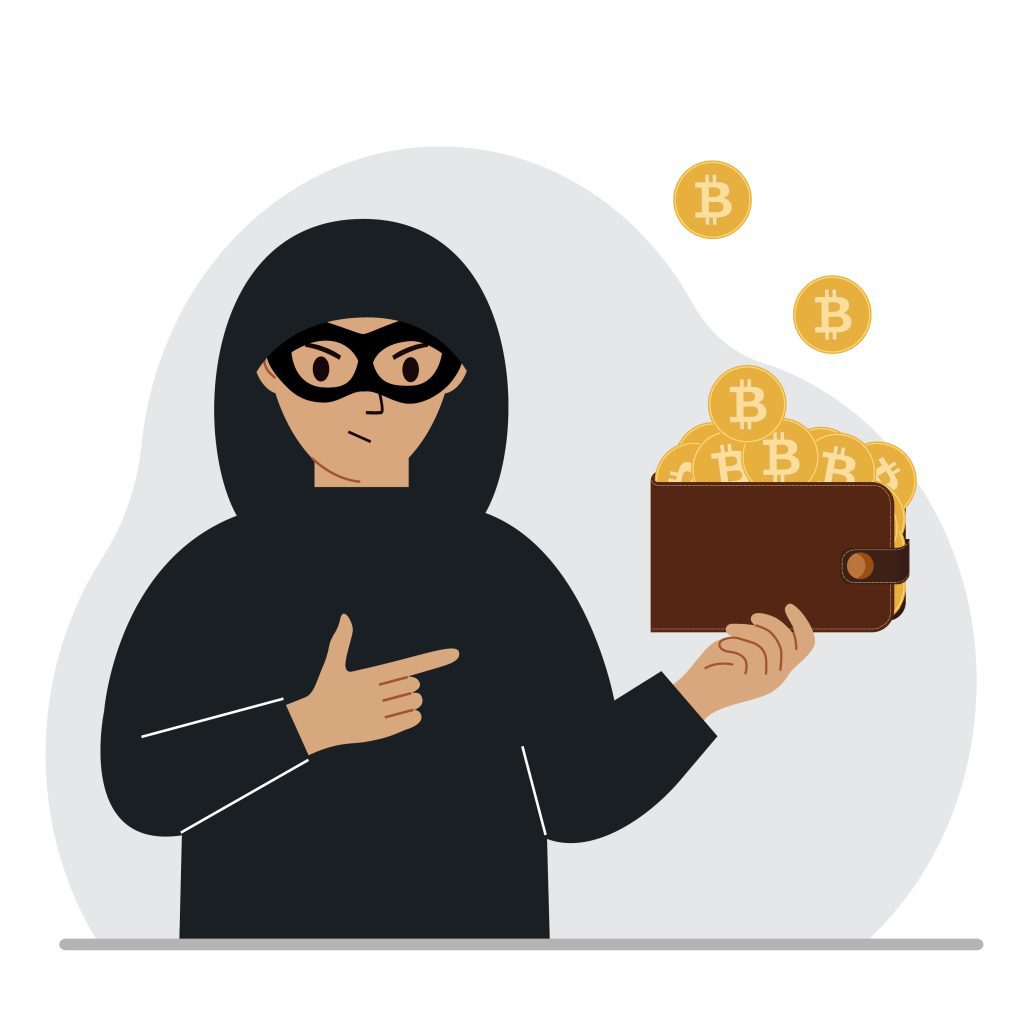Welcome to the fascinating world of cryptocurrency, a landscape teeming with exciting possibilities, but also not without its share of pitfalls. Among the most prominent threats in this crypto frontier are phishing scams, deceptive practices used by bad actors aiming to trick you into giving up your sensitive information. These scams are becoming increasingly sophisticated, adapting to the cryptocurrency environment with an alarming ingenuity. That’s why it’s crucial to understand what they are, how they work, and how you can protect yourself against this crypto scams.
Phishing scams in the crypto sphere can take many forms, often designed to imitate trustworthy entities like a renowned crypto exchange or a popular NFT marketplace. The goal of the scammer is to trick you into believing you’re interacting with a legitimate service when, in fact, you’re handing over your valuable data to a thief. This article is your guide, your map to safely traversing these treacherous waters, empowering you with the knowledge and tools to avoid falling prey to these digital pirates.
Understanding the Different Types of Crypto Phishing Scams


Knowledge is our greatest weapon against phishing scams, and understanding the different types they can take is our first line of defense. In the crypto world, these scams have adapted to the unique landscape, evolving into forms like fake emails, counterfeit websites, and fraudulent social media accounts.
In the realm of emails, scammers often send communications that appear to come from a trusted source, like your crypto wallet provider or an NFT platform you use. These emails might ask you to confirm your login details, or they might include a link that, when clicked, leads you to a fake website designed to steal your information.
Then there are the social media traps. Scammers create fake accounts that impersonate a legitimate crypto business or influencer. They may post fake giveaways, asking you to send them a small amount of cryptocurrency with the promise of a larger amount in return.
The world of Non-Fungible Tokens (NFTs) has also seen its share of scams, with bad actors using tactics like the ‘airdrop scam’. Here, they impersonate a legitimate project, offering free tokens to users. Once the user interacts with the scammer to claim the tokens, their data is compromised.
Other scams in the NFT space include fake technical support, where scammers create a fraudulent support system to trick users into revealing their information. ‘Stealth drops’ are another tactic, where scammers promote a sudden, exclusive sale of NFTs from a particular project, which are nothing more than smoke and mirrors.
Essential Tips to Avoid Falling Victim to Phishing Scams
Now that we’ve identified the enemy, how do we protect ourselves? Fortunately, there are several strategies you can implement to keep these digital predators at bay.
Firstly, always scrutinize emails related to cryptocurrency. Check the sender’s address, look for any grammatical or spelling errors, and verify the authenticity of any links included in the email. A good rule of thumb is to never click on links in unsolicited emails. Instead, manually type in the website address in your browser.
In the social media sphere, remember that if something sounds too good to be true, it probably is. Be wary of accounts promising huge returns or exclusive offers, especially if they ask for an upfront payment.
When it comes to mobile apps, make sure you’re downloading from a legitimate source like the Google Play Store or the Apple App Store. Even then, read through the reviews and check the app’s history before you download.
In the exciting world of NFTs, a little skepticism can go a long way. Be wary of unexpected airdrops and too-good-to-be-true offers. Always research a project thoroughly before investing.
Strengthening Your Online Security in the Crypto Space
Now that we’ve equipped ourselves with the knowledge to spot a phishing scam, let’s focus on building up our digital defenses. A strong, security-conscious approach is essential in the world of cryptocurrency.
Begin by fortifying your accounts with strong, unique passwords. Using a password manager can be a good way to store and manage these passwords safely. Two-factor authentication (2FA) is another critical layer of security. 2FA requires a second form of verification in addition to your password, making it considerably harder for scammers to access your accounts.
Another great tool is a hardware wallet. These devices securely store your private keys offline, making it almost impossible for hackers to get their hands on them. Remember, in the crypto world, whoever controls the private keys controls the coins.
Lastly, always keep your devices updated. Regular updates not only provide new features but also fix security vulnerabilities that scammers could exploit.
Conclusion
Navigating the crypto world can be exciting and profitable, but it’s essential to keep our eyes open to the potential dangers. Phishing scams pose a significant threat, but with the right knowledge and tools, we can defend ourselves effectively.
Staying vigilant, strengthening our digital security, and using secure payment methods like Binance Pay can help us stay one step ahead of scammers. So let’s continue to explore and enjoy the potential of the crypto world, armed with the knowledge and tools to protect our valuable investments. Remember, knowledge is power, and in the crypto world, it’s also your best defense.









